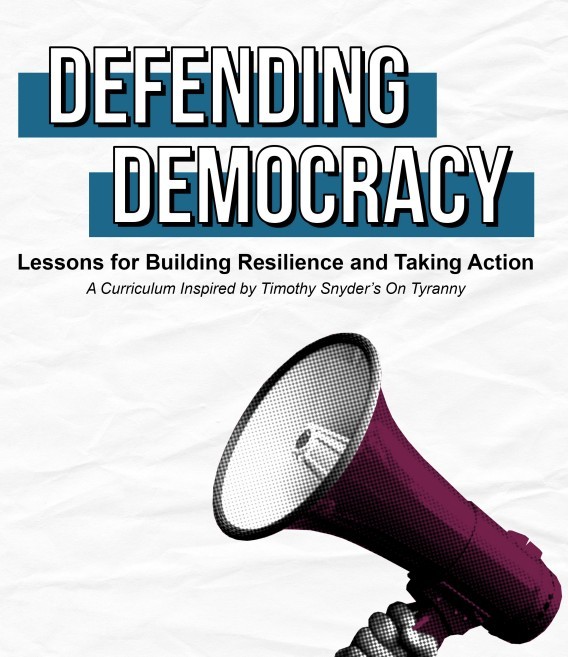Resources
Topic
History does not repeat, but it does instruct [...] We might be tempted to think that our democratic heritage automatically protects us from such threats.
Download Full Book Alignment Guide
DEFENDING DEMOCRACY: Lessons for Building Resilience and Taking Action

Dear Educators!
Teaching about complex historical and contemporary issues can be challenging. As the world becomes increasingly polarized, individuals often exist in echo chambers–repeating the narratives that they believe in while also shutting out voices and narratives that they don’t agree with (or with voices that they want excluded from the conversation).
Defending Democracy provides opportunities to lead and engage in difficult conversations with your students. There are no shortcuts or simple answers to creating classrooms where all learners feel comfortable and encouraged to share their opinions, and, just as importantly, where they can learn to listen respectfully and consider other viewpoints.
We believe the following guidelines are a good starting point for engaging your students in difficult (and sometimes heated) conversations:
- Ask students to create a community agreement and enforce a set of ground rules for respectful classroom conversations. This is best done at the beginning of the year or semester so that students can reference them early and often.
- Encourage students to view disagreements and debates as opportunities to learn and grow in their thinking.
- Acknowledge how difficult it can be to share a different or unpopular opinion, especially among one’s friends and peers.
- Remind students to use “I” statements and to speak from their own experience.
- Emphasize that students should avoid generalizations about other groups and identities.
- Remind students that personal attacks are never appropriate.
- Encourage students to complicate their thinking and avoid oversimplification by avoiding stereotypes.
- Ask students to be precise and specific with their language.
- Remind students of the difference between intent and impact. Acknowledge that our words and actions can have a different impact than we intended and it is important to recognize how they might have impacted someone else (regardless of what we meant).
- Allow time to process the material. Provide space for emotional responses as well as reflection.
- Support students to work critically with source material, particularly on the internet. Recommend authoritative sources with factual, archival content.
- Encourage students to make connections between historical and contemporary events while also recognizing their complexities and differences.
- Fight cynicism and apathy with hope and opportunities for action. Reinforce the idea that we all have a role to play in defending democratic ideals and fighting authoritarianism.
"It doesn’t matter where you come from or who you are; your voice truly does matter and you’re more than capable of making change in the community."
Hope of Family


